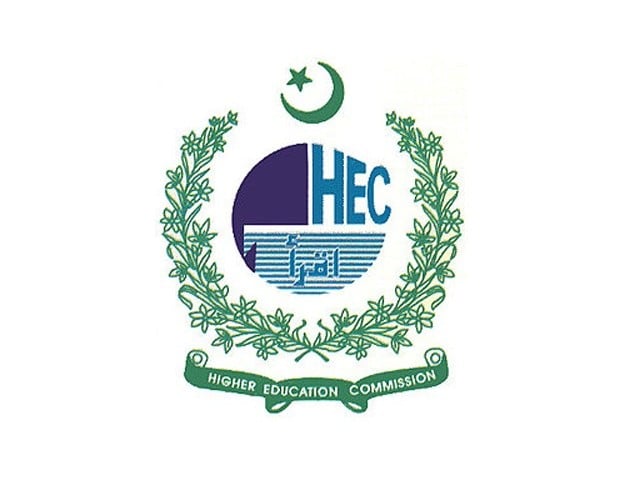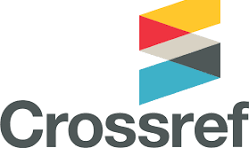Exploring the Association Between Internet Addiction, Gender Differences, and Academic Performance Among Business Students
Keywords:
Internet addiction disorder, students, cross-sectional study, academic performance, social media, psychological factorAbstract
Background of the study: The extensive use of the internet has improved many parts of everyday life, but it has also resulted in digital addiction, particularly among young adults, including business students. The purpose of this study is to look at the incidence of internet addiction among business students and uncover any relevant trends or demographic characteristics.
Methodology: A cross-sectional study was conducted with 384 randomly selected business students from different studies during period of six month. Internet addiction levels were assessed using the Internet Addiction Test (IAT) by Kimberly Young, with addiction categorized as mild, moderate, and severe based on IAT scores. Data was analyzed using descriptive and inferential statistics, with chi-square tests to examine gender-based differences.
Results: Among the 384 participants, 57.3 % male and 42.7% female distribution]. Internet addiction prevalence was as follows: 39.1% mild, 27.1% moderate, and 10.4% severe addiction, with males showing higher addiction levels compared to females P value <0.05. Students with internet addiction exhibited lower academic performance on average than non-addicted peers, revealing a statistically significant association p value < 0.05.
Conclusions: Internet addiction is prevalent among business students, highlighting the need for preventive and therapeutic interventions. Promoting awareness and controlled internet use may help mitigate negative academic impacts.
References
1. Anastasya, Y., Hadiah, C., Amalia, I., & Suzanna, E. (2022). Correlation between fear of missing out and internet addiction in students. International Journal of Islamic Educational Psychology, 3(1). https://doi.org/10.18196/ijiep.v3i1.14038
2. Barroso, M., & Laborda, J. (2022). Digital transformation and the emergence of the Fintech sector: Systematic literature review. Digital Business, 2(2), 100028. https://doi.org/10.1016/j.digbus.2022.100028
3. Bhandari, P., Neupane, D., Rijal, S., Thapa, K., Mishra, S., & Poudyal, A. (2017). Sleep quality, internet addiction and depressive symptoms among undergraduate students in nepal. BMC Psychiatry, 17(1). https://doi.org/10.1186/s12888-017-1275-5
4. Chaudhari, B., Menon, P., Saldanha, D., Tewari, A., & Bhattacharya, L. (2015). Internet addiction and its determinants among medical students. Industrial Psychiatry Journal, 24(2), 158. https://doi.org/10.4103/0972-6748.181729
5. Chern, K.-C. and Huang, J.-H. (2018) 'Internet addiction: Associated with lower health-related quality of life among college students in Taiwan, and in what aspects?,' Computers in Human Behavior, 84, pp. 460–466. https://doi.org/10.1016/j.chb.2018.03.011.
6. Demirdöğen, E.Y. et al. (2024) 'Social media addiction, escapism and coping strategies are associated with the problematic internet use of adolescents in Türkiye: a multi-center study,' Frontiers in Psychiatry, 15. https://doi.org/10.3389/fpsyt.2024.1355759.
7. Dwivedi, Y.K. et al. (2020) 'Setting the future of digital and social media marketing research: Perspectives and research propositions,' International Journal of Information Management, 59, p. 102168. https://doi.org/10.1016/j.ijinfomgt.2020.102168.
8. Geng, X., Zhang, J., Liu, Y., Xu, L., Han, Y., Potenza, M. N., & Zhang, J. (2023). Problematic use of the internet among adolescents: A four-wave longitudinal study of trajectories, predictors and outcomes. Journal of Behavioral Addictions. https://doi.org/10.1556/2006.2023.00021
9. Goel, D., Subramanyam, A. and Kamath, R. (2013) 'A study on the prevalence of internet addiction and its association with psychopathology in Indian adolescents,' Indian Journal of Psychiatry, 55(2), p. 140. https://doi.org/10.4103/0019-5545.111451.
10. Hossain, A., Afrin, D., Islam, M., Rabbi, F., & Internationals, O. (2017). The school-level factors associated with internet addiction among adolescents: a cross-sectional study in bangladesh. Journal of Addiction and Dependence, 3(2), 170-174. https://doi.org/10.15436/2471-061x.17.1686.
11. Javaeed, A. et al. (2019) 'Relationship between internet addiction and academic performance of undergraduate medical students of Azad Kashmir,' Pakistan Journal of Medical Sciences, 36(2). https://doi.org/10.12669/pjms.36.2.1061.
12. Khan, S. A., Arshad, K., & Asad, N. (2022). A Case Study of Internet Addiction among Undergraduate Students of the University of Karachi. Global Mass Communication Review, VII(I), 13–23. https://doi.org/10.31703/gmcr.2022(vii-i).02
13. Kumar, A., Nawaz, A., Kumar, R., & Yamuna, B. (2017). Internet addiction and factors associated with it: a cross-sectional study among students of a medical college in davangere, karnataka.
14. International Journal of Community Medicine and Public Health, 4(7), 2525. https://doi.org/10.18203/2394-6040.ijcmph20172853
15. Kumar, T. et al. (2023) 'Prevalence of Internet Addiction and Impact of Internet Socialization on Professional, Academic, Social Lives and Sleep Pattern Among Students and Professionals from Various Fields Across India,' Advances in Medical Education and Practice, Volume 14, pp. 1369–1378. https://doi.org/10.2147/amep.s438215.
16. Lebni, J., Toghroli, R., Abbas, J., NeJhaddadgar, N., Salahshoor, M., Mansourian, M., … & Ziapour, A. (2020). A study of internet addiction and its effects on mental health: a study based on iranian university students. Journal of Education and Health Promotion, 9(1), 205. https://doi.org/10.4103/jehp.jehp_148_20
17. Li, H. et al. (2022) 'Student Stress and Online Shopping Addiction Tendency among College Students in Guangdong Province, China: The Mediating Effect of the Social Support,' International Journal of Environmental Research and Public Health, 20(1), p. 176. https://doi.org/10.3390/ijerph20010176.
18. Li, W., O’Brien, J., Snyder, S., & Howard, M. (2015). Characteristics of internet addiction/pathological internet use in u.s. university students: a qualitative-method investigation. Plos One, 10(2), e0117372. https://doi.org/10.1371/journal.pone.0117372
19. Liu, X., Bao, Z. and Wang, Z. (2009) 'Internet Use and Internet Addiction Disorder among Medical Students: A Case from China,' Asian Social Science, 6(1). https://doi.org/10.5539/ass.v6n1p28.
20. MBBS, D. (2018). Factors responsible for internet addiction among adolescents of central india. Journal of Medical Science and Clinical Research, 6(4). https://doi.org/10.18535/jmscr/v6i4.42
21. Mohamed, K. (2023). Prevalence of internet addiction among medical students and its impact on psychological distress: a cross-sectional study.. https://doi.org/10.21203/rs.3.rs-3173993/v1
22. Mufti, F. N., Ahmad, S. M., & Hussain, I. A. (2021). Undergraduate students and Facebook use: A case study of Universities of Peshawar. LINGUISTICA ANTVERPIENSIA, 4387–4400. https://www.hivt.be/linguistica/article/view/1531
23. Naffise, M. et al. (2013) 'The prevalence of internet addiction among the students of Rafsanjan University of Medical Sciences,' Asean Journal of Psychiatry, 14(2), pp. 109–116. https://www.aseanjournalofpsychiatry.org/articles/the-prevalence-of-internet-addiction-among-the-students-of-rafsanjan-university-of-medical-sciences.pdf.
24. Nawaz, N. (2021). Impact of internet on academic performance of university students in Pakistan. European Scientific Journal ESJ, 17(38). https://doi.org/10.19044/esj.2021.v17n38p1
25. Nazari, A., Hosseinnia, M., Torkian, S., & Garmaroudi, G. (2023c). Social media and mental health in students: a cross-sectional study during the Covid-19 pandemic. BMC Psychiatry, 23(1). https://doi.org/10.1186/s12888-023-04859-w
26. Öztekin, G.G. (2024) 'Associations between internet addiction and school engagement among Turkish college students: mediating role of psychological distress,' Frontiers in Psychology, 15. https://doi.org/10.3389/fpsyg.2024.1367462.
27. Rouvinen, H. et al. (2021) 'Internet use and health in higher education students: a scoping review,' Health Promotion International, 36(6), pp. 1610–1620. https://doi.org/10.1093/heapro/daab007.
28. Saeed, M., Ullah, Z., & Ahmad, I. (2020). A qualitative exploratory study of the factors causing academic stress in undergraduate students in Pakistan. Liberal Arts and Social Sciences International Journal (LASSIJ), 4(1), 203–223. https://doi.org/10.47264/idea.lassij/4.1.18
29. Sharma, A. et al. (2014) 'Internet addiction among professional courses students: A study from central India,' International Journal of Medical Science and Public Health, 3(9), p. 1069. https://doi.org/10.5455/ijmsph.2014.180620142.
30. Teodorescu, C.A., Durnoi, A.-N.C. and Vargas, V.M. (2023b) 'The rise of the mobile Internet: Tracing the evolution of portable devices,' Proceedings of the ... International Conference on Business Excellence, 17(1), pp. 1645–1654. https://doi.org/10.2478/picbe-2023-0147.
31. Upadhayay, N. and Guragain, S. (2017). Internet use and its addiction level in medical students. Advances in Medical Education and Practice, Volume 8, 641-647. https://doi.org/10.2147/amep.s142199
Downloads
Published
Issue
Section
License
Copyright (c) 2024 Archives of Management and Social Sciences

This work is licensed under a Creative Commons Attribution 4.0 International License.




